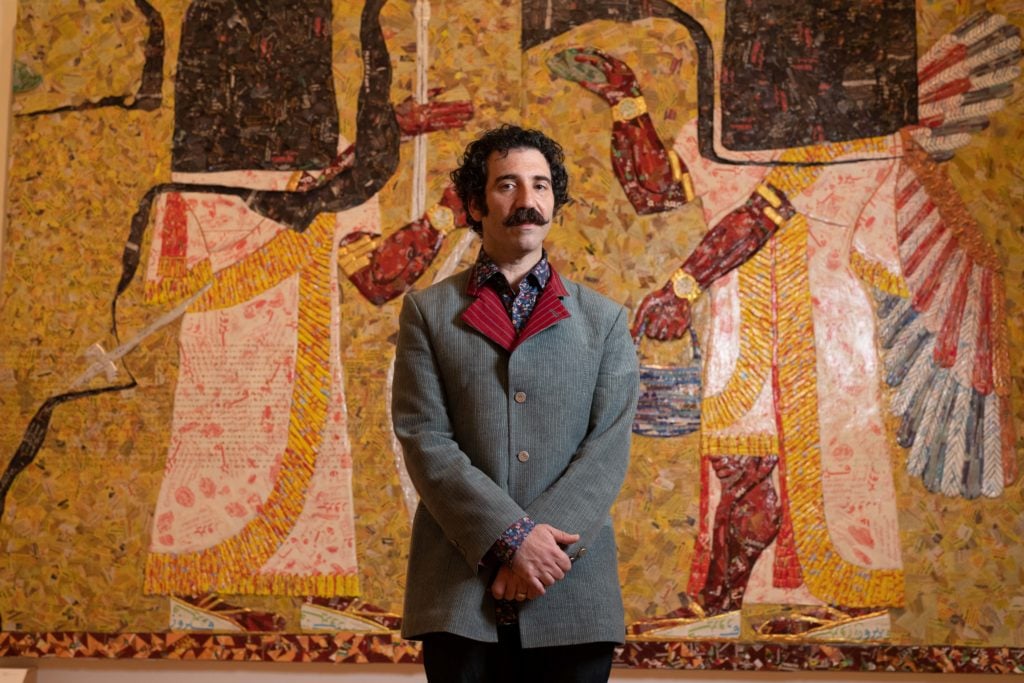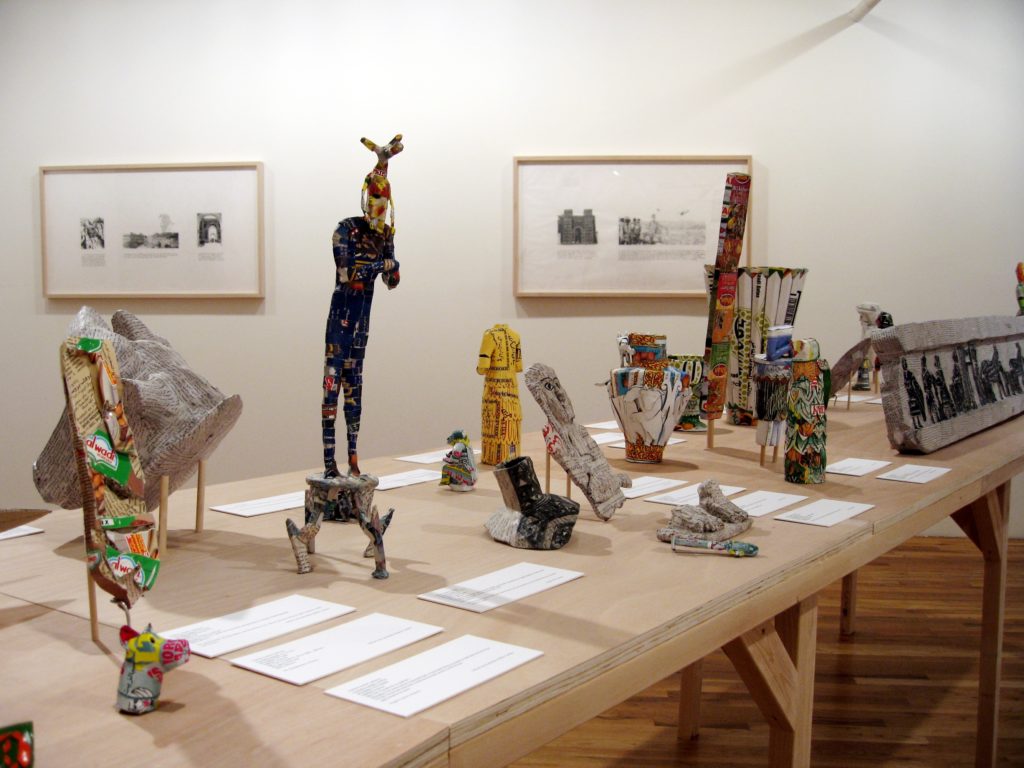People
Artist Michael Rakowitz, Who Tackles Identity, Heritage, and History, Has Won the Prestigious Nasher Prize
Rakowitz is the fifth winner of the coveted award, and will take home $100,000 to work on future projects.

Rakowitz is the fifth winner of the coveted award, and will take home $100,000 to work on future projects.

Taylor Dafoe

The Nasher Sculpture Center in Dallas announced today that Michael Rakowitz has been awarded the 2020 Nasher Prize. With the award, which is given annually to a living artist whose work pushes the limits of sculpture, the Chicago-based artist will take home $100,000 to be put toward future projects.
Rakowitz’s heavily research-based work straddles sculpture and installation and contends with contentious historical legacies, from the US invasion of Iraq to the shooting of Tamir Rice by police in Cleveland, Ohio. He made headlines this year when he withdrew from the 2019 Whitney Biennial months before it even opened, making him the first artist to speak out again what he called the “toxic philanthropy” of the museum’s then-vice chair, Warren Kanders.
“Michael Rakowitz’s work bridges, on the one hand, social sculpture—what we’ve come to call relational aesthetics—and embodied material work on sculpture, with a great sense of humor and a great sense of empathy,” Carolyn Christov-Bakargiev, a juror on the prize’s awarding committee, said in a statement. “Michael’s work is about healing and about how to take the problem of cultural destruction and transform that into a resource for a very optimistic vision of the reconstruction of our society.”

Michael Rakowitz, The Invisible Enemy Should Not Exist (Recovered, Missing, Stolen Series) (2007). Courtesy of the Nasher Sculpture Center.
The Nasher Prize has quickly emerged as one of the most prestigious awards in the field. Rakowitz is the fifth artist to win it since it was created in 2016, joining an impressive group of former winners: Isa Genzken (2019), Theaster Gates (2018), Pierre Huyghe (2017), and Doris Salcedo (2016).
Rakowitz will be given an award designed by Renzo Piano, the architect behind the Nasher’s building, in a ceremony scheduled for April of next year.
Since the late 1990s, Rakowitz has worked on increasingly ambitious projects that often take years to realize. Through his ongoing “paraSITE” series, he has erected nearly 100 inflatable shelters for the homeless in urban areas, each of which provides heat through a connection to the HVAC system of an adjacent building. Since 2003, he has served food to strangers in his roving Iraqi culinary workshop, Enemy Kitchen.
In 2007, he launched “The invisible enemy should not exist,” a series in which he is attempting to recreate the more than 7,000 artifacts that were destroyed since the 2003 raid on the National Museum of Iraq and ISIS’s spree of destruction in 2015. The most recent iteration of the project, a recreation of a destroyed statue that dated back to 700 BC, was installed in Trafalgar Square in London.
“[Rakowitz’s] work wrestles in unique and revelatory ways with many of the complex questions of history, heritage, and identity that are so much at the forefront of contemporary culture and politics,” Jeremy Strick, director of the Nasher, said in a statement. “Interrogating objects and materials—their history and associations—Rakowitz weaves dense webs of meaning in distinct bodies of work rich with insight and surprise.”